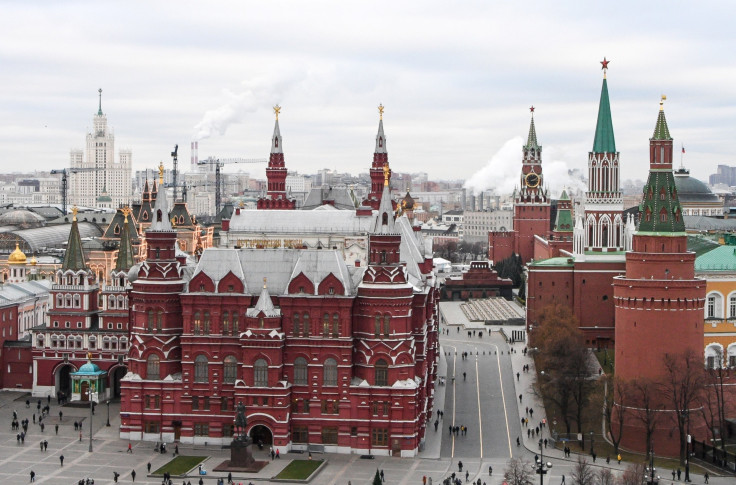Russia Protests: Hundreds Detained In Moscow In Biggest Demonstrations Since 2011

Tens of thousands of Muscovites demonstrated Saturday for free and transparent municipal elections, with hundreds being arrested by city authorities. Independent monitoring groups have claimed that these are the largest demonstrations the city has witnessed since 2011.
Protesters are frustrated that opposition candidates have been barred from running for office in the municipal elections. The demonstrators gathered mainly at the Academician Sakharov Avenue in central Moscow. There were also smaller pro-democracy protests in Russia's second-largest city, Saint Petersburg. BBC News reported that dozens of people were detained in smaller protests in several other Russian cities.
Tens of thousands of Russians staged the country's biggest political protest in years, defying a crackdown to demand free elections to Moscow's city legislature. #Russia https://t.co/buLCRXO5kO
— Julia Davis (@JuliaDavisNews) August 10, 2019
Among those arrested was Alexei Navalny, a frequent critic of President Vladimir Putin. Another prominent opposition figure, Lyubov Sobol, was detained by police. Sobol was prevented from running for a Moscow council seat and is a lawyer at the Anti-Corruption Foundation.
Independent monitoring group The White Counter estimated the number of protesters could be up to 60,000, the largest in eight years. The Moscow police claim that the number totaled 20,000.
Protesters carried slogans such as "Down with the czar!" and "Free Yegor Zukov!" Zhukov is a prominent Russian YouTuber, and one of Putin's biggest critics. He was arrested on Aug. 2 due to charges of inciting mass unrest.
Human Rights Watch has claimed that "Today, Russia is more repressive than it has ever been in the post-Soviet era," and that authorities "crack down on critical media, viciously harass political activists and peaceful protesters, engage in smear campaigns against independent groups, increasingly use their power to ban foreign organizations as 'undesirable' and penalize Russian nationals and organizations for supposed involvement with them."
During this week's protests, Russian authorities accused German media outlet Deutsche Welle (DW), which has a bureau in Moscow, of pushing incitement against the Russian government. They have even threatened DW with further action, which could mean expulsion from the country.
Reporters without Borders ranks Russia 149 out of 180 countries for press freedom, with 180 being the worst. Russia has been called a "stifling atmosphere for independent journalists."
Many of Russia's opposition candidates blame Putin for Russia's lack of transparency and democracy.
Putin is perhaps the most enigmatic and influential Russian figure of the post-Soviet era. An ex-KGB officer who served in East Germany, he rose to power after Russia faced a lost decade in the 1990s under former President Boris Yeltsin. Putin ran for the presidency in 2000 as a candidate who wanted to restore security to Russia's troubled Chechnya region, which had become overrun by separatist militants.
Putin has since been either the President or Prime Minister of Russia since 2000, effectively wielding control over the country for almost 20 years. His supporters say that he has restored stability and national pride, while his opponents say that his government has turned Russia into an authoritarian state, with little respect for human rights.
© Copyright IBTimes 2024. All rights reserved.





















